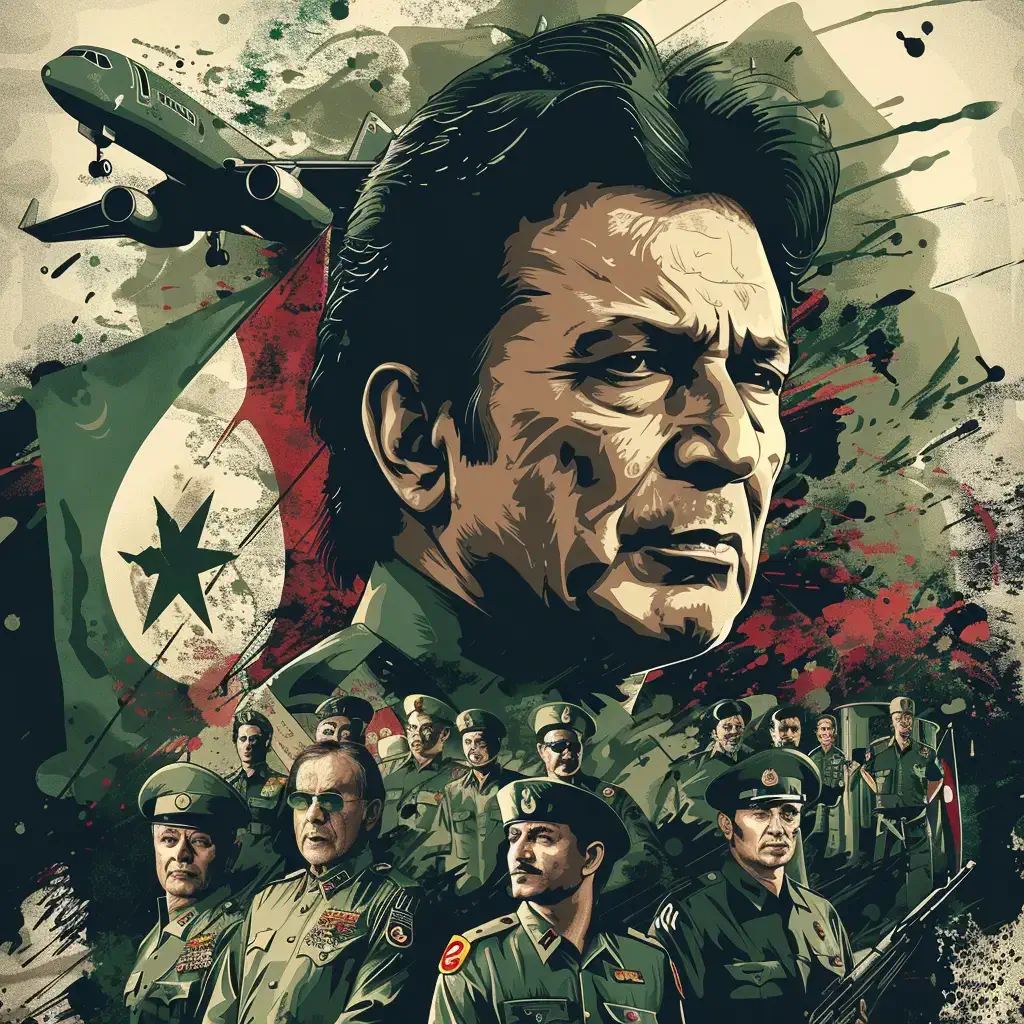Exploring Military Leadership and Imran Khan's Impact on Pakistan's Unity
The other day, someone was praising the Pakistan Army, and to provide context, the Pakistan Army currently has a significant controlling influence over the country. In previous blog posts, I may have discussed some points, which I will reiterate now, particularly focusing on the role of Pakistan's army in the current dynamics. Let's first analyze the perspective of the individual praising the army. His praise likely stems from self-interest, as he has business operations in Pakistan. In an authoritative state, alignment with the ruling powers, in this case, the army, is essential for business survival. Thus, his commendations could be seen as being influenced by his need to align with the powerful.
In advocating for pragmatism over idealism, the individual emphasized not only the practical approach but also the public adulation of the army and its chief, highlighting the belief that the country's existence is due to its army, and the army's essence is due to its chief. However, it's essential to recognize that an army is just one of many institutions that shape a country. To illustrate, if we apply this logic to the United States, claiming that the essence of the U.S. is solely because of its military and its leader, currently Joe Biden, such a statement would be met with ridicule. It's an oversimplified view to attribute the entirety of a nation's existence to its army and its leader, ignoring the complex interplay of various institutions that define a country's identity and functionality.
The core issue arises when any institution, like the army, seeks to dominate others, influencing them and allocating disproportionate resources to itself. This can lead to the army's involvement in various sectors, from politics to private enterprise, not to defend the populace but to extract resources. They may create narratives of external and internal threats to justify their resource extraction. The tactics to maintain this control range from bribery and blackmail to outright violence and intimidation.
Furthermore, the army chief, typically appointed for a three-year term, could see an extension of their tenure if they engage in sufficiently compromising actions.The transient nature of this position incentivizes the accumulation of resources and potential expatriation post-tenure. Additionally, PTI chief Imran Khan stands out as a unifying figure in recent political history, an anomaly in a nation often divided by ethnicity and sects. His leadership hints at the potential to bring cohesion to a diverse and largely illiterate populace that is susceptible to manipulation. This narrative underscores the complex interplay between military power and national unity in the context of Pakistan's socio-political landscape.
Imprisoning Imran Khan who has the potential to unify a country suggests two things: either the decision-maker is foolish or intentionally aiming for the country's disintegration. In this context, if an army chief is responsible, he is either grossly inept or pursuing fragmentation. The current army chief is criticized as not only unintelligent, given a perceived trend in the military where less capable individuals are promoted, but also accused of deliberately causing national division. Such actions might align with external interests rather than national unity, suggesting that decisions are influenced by foreign powers rather than domestic welfare.
The discourse extends to the broader implications of military overreach in Pakistan, highlighting concerns that excessive force and intimidation could provoke armed resistance, particularly in regions with a history of armed populace. The narrative draws parallels with historical events like the separation of Bangladesh, warning that similar pressures could lead to further fragmentation.
In my opinion, the focus should be on advocating for military restraint and promoting democratic processes that allow elected officials to govern without undue military interference. I express a broader concern about the country's trajectory, fearing that current policies will lead to long-term instability and decline.
In conclusion, I call for intellectual and democratic resistance against military dominance, both within Pakistan and through international advocacy, to ensure the country's unity, justice, and development. The reflection is rooted in a deep concern for the nation's future, urging those within and outside the country to work towards a more prosperous and stable Pakistan.

